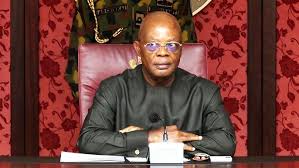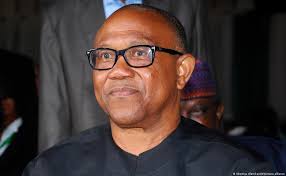
The recent local government elections in Rivers State, held on Saturday, were officially described as peaceful and orderly by the state’s Sole Administrator, Ibok-Ete Ibas. According to Ibas, the polls marked a decisive step toward restoring democratic governance at the grassroots level — a claim that, if true, would be a welcome development in a state historically known for political tension and electoral violence.
However, this statement invites closer scrutiny. Is Ibok-Ete Ibas’s positive assessment accurate, or is it an attempt to cajole the public into believing that as a Sole Administrator, he alone is sufficient to manage the affairs of this oil-rich and politically complex state?
The Context of the Rivers LG Elections
Rivers State has long been a hotbed of political contestation. Electoral processes in the state have often been marred by violence, intimidation, and controversies over legitimacy. In this context, any peaceful conduct of elections would indeed be noteworthy.
Sole Administratorship itself is a controversial arrangement. Appointed rather than elected, the Sole Administrator wields significant executive powers without a direct democratic mandate from the people. In Rivers, this setup has been a subject of debate, with critics arguing that it undermines grassroots democracy by sidelining elected local government officials.
Is the Election Truly Peaceful and Orderly?
While Ibok-Ete Ibas’s statement paints an optimistic picture, the reality on the ground is best judged through independent verification. Reports from civil society groups, election observers, and media outlets are crucial in confirming whether the polls were conducted fairly and without incident.
If these independent sources corroborate Ibas’s claim, then the election could indeed represent progress toward grassroots democratic restoration. It would also be a testament to the administration’s ability to maintain peace in a state that is economically vital to Nigeria, given its oil resources.
Or Is It a Political Message?
On the other hand, there is a possibility that Ibas’s statement serves a dual purpose: not only to announce the success of the elections but also to strengthen his own political legitimacy. As Sole Administrator, without a democratic mandate, affirming that elections were peaceful could be a way to reassure the public and stakeholders that the state is in capable hands under his leadership.
This subtle messaging may be aimed at consolidating acceptance of his administration and diminishing criticisms about the lack of elected local government officials.
What Does This Mean for Rivers State?
Regardless of the truth behind the statement, it is essential to recognize that the long-term health of democracy in Rivers State depends on more than one peaceful election. Sustainable democratic governance requires consistent electoral integrity, freedom of political expression, and genuine representation at all levels of government.
Ibok-Ete Ibas’s claim, if genuine, should be a starting point for rebuilding trust between the government and the people. However, if perceived as mere political cajoling, it risks deepening skepticism and mistrust.
The recent Rivers local government election and the Sole Administrator’s praise of its peaceful conduct present a complex picture. While a peaceful poll is undeniably positive, the question remains: is Ibok-Ete Ibas’s role as Sole Administrator enough for the oil-rich state’s governance needs? Only time, continued transparency, and the willingness to embrace fully democratic local governance will provide the answer.




